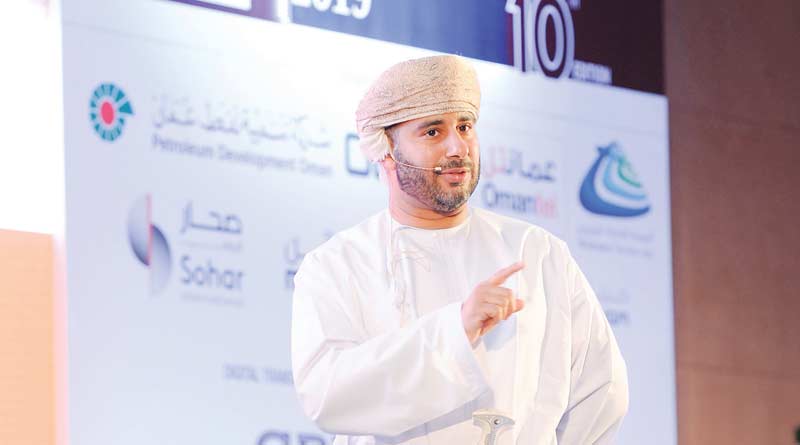

Omani businesses must embrace innovation to ramp up their product and service offerings, which is imperative to enhancing the complexity of the Omani economy and thus sustaining long-term growth.
This was one of several key takeaways from an illuminating keynote presentation by His Highness Sayyid Dr Adham bin Turki al Said (pictured), Assistant Professor of Economics at the College of Economics and Political Science, Sultan Qaboos University, at the opening session of the OER Business Summit held here last week.
Economic complexity is a reflection of the amount of knowledge that is embedded in the productive structure of an economy. Research have shown a strong causative link between the economic complexity of a country and important economic indicators, such as GDP, job creation, non-oil export revenues, and so on.
The well-known economist, citing Oman’s latest rankings on the Global Innovation Index, noted that the Sultanate had performed poorly on three key fronts: business sophistication, knowledge and technology output, and creative output. Businesses, and Oman in general, were less creative competitively compared to the rest of the world, he lamented.
While the government was doing its part in addressing these shortcomings – notably through strategies, initiatives and improved messaging — the private sector has to step up as well, said HH Sayyid Dr Adham. He noted in this regard the need for private businesses to secure the right partners that can help them improve innovation and technological output.
“Innovation leads to economic complexity through providing products and services that are highly complex and are well connected with the international community,” said HH Sayyid Dr Adham. Referencing a study by Harvard Innovation Labs, he said an assessment of Omani exports indicates that export commodities mainly fall into three categories: Extractive activities (hydrocarbons and minerals), Travel and Tourism, and the rest put together (including petrochemicals, light machinery, services and so.
Travel and tourism, while a pillar of the Omani economy, do not create high-value economic opportunities because they do not drive the growth of significant supply chains. They are basically a “trade and service”, with a relatively simple ‘complexity’, he said.
Omani businesses, the economist stressed, should focus on creating newer products and services. A review of the Sultanate’s exports from 2002 to 2017 reveals that Oman has created only around 25 new product lines. “This is not enough to give us serious growth,” said HH Sayyid Dr Adham. “Oman is not yet leveraging its infrastructure and assets, such as its seaports and airports, etc, that can be used to move high-end products to high-end markets,” he said.
However, on a positive note, the Sultanate is expected to grow at a decent rate of 4.5 per cent over the next decade, he said. This gives Omani businesses the opportunity to position themselves suitably for growth.
In this regard, HH Sayyid Dr Adham also underlined the importance of improved productivity for sustaining growth. “For Oman to capitalise on growth, not only is innovation important, and increasing complexity as well, but those should result in productivity improvements, whether worker-related improvements in a factory, or productivity of your
Oman Observer is now on the WhatsApp channel. Click here



